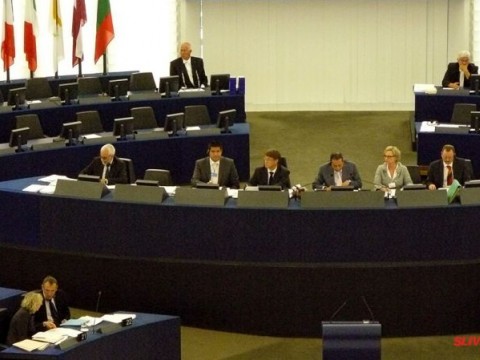
People with autism spectrum disorders are not always covered by disability certificates
Official diagnoses should be recognised across borders and access to diagnosis improved
Common legal status for disabilities needed taking into account the needs of people with autism
In a resolution, MEPs highlight the issues faced by people with autism spectrum disorders and ask for EU action.
The text, adopted on Wednesday by the European Parliament, is based on citizens’ concerns expressed in a recent petition. MEPs argue that persons with autism spectrum disorders should have stronger protections for their rights in the EU. It was adopted with a show of hands.
MEPs note that people with autism do not have the same characteristics, and need personalised support, also when travelling in other EU countries. At the same time, many face difficulties in gaining recognition for their disability status, even when they have a diagnosis. Another issue is the time that it takes to get diagnosed with autism spectrum disorders in many member states. MEPs ask that EU countries facilitate and speed up access to diagnosis, and want to see disability recognition linked to a diagnosis.
EU-wide recognition of diagnosis
Given that the EU does not currently have a standardised and mutually recognised status for autism spectrum disorders, people with these disorders struggle to prove their condition when moving across borders, barring them from accessing necessary support. This is why official diagnoses should be recognised alongside disability certificates, say MEPs. They would like to see a harmonised European legal status for disabilities allowing for mutual recognition throughout Europe taking into account the specificity of autism spectrum disorders. Also, MEPs ask for an updated Commission proposal on the long-discussed Anti-discrimination directive, building on the Parliament position on it.
Noting that people with disabilities still face barriers to their free movement and other obstacles to fully enjoying their fundamental rights, MEPs want to see concrete measures such as infrastructures adapted to the reception of autistic persons in hospitals, train stations, airports and in public transport, autism-friendly spaces such as ‘silence rooms’, and guaranteed assistance to people with autism while they travel between EU countries.
In the text, MEPs also ask the EU to allocate funds to anti-discrimination policies against people with autism, especially women and girls, and for reformed guardianship systems that allow autistic persons to act in a legal capacity. The European Disability Card is a welcome step in the right direction, and its scope should be extended to all situations where people with disabilities can receive support or special conditions, argue MEPs.
Background
The current EU Strategy for the Rights of Persons with Disabilities 2021-2030 involves the creation of a European Disability Card, which the Commission proposed on 6 September 2023.
